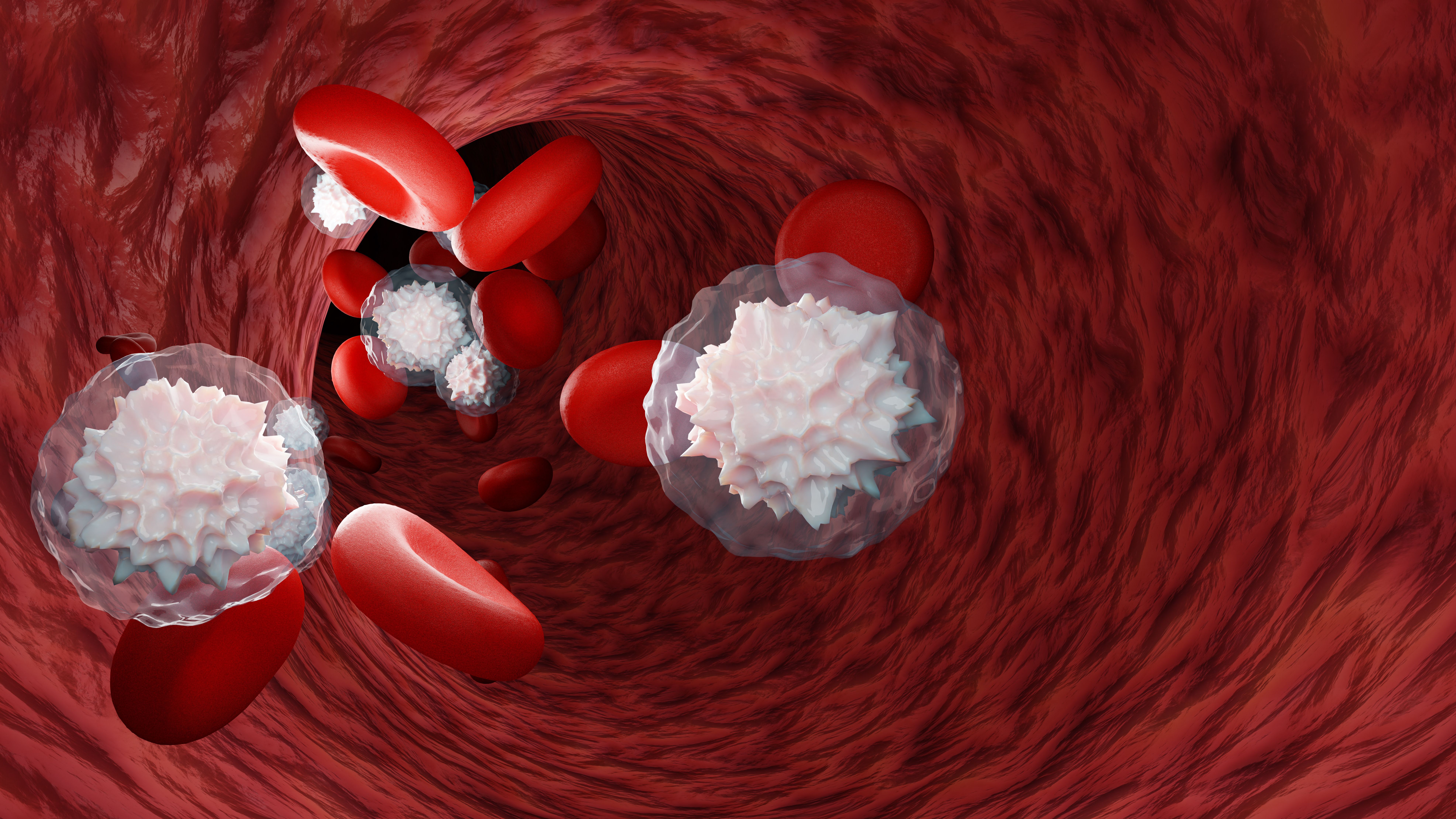FDA Approves Axatilimab for Chronic GVHD in New Vial Sizes
Axatilimab has gained FDA approval in 9 mg and 22 mg vials, expanding treatment options for patients with chronic GVHD after 2 prior therapy failures.

- The FDA has granted approval to axatilimab-csfr (Niktimvo) in 9 mg and 22 mg vial sizes.
- Currently, axatilimab is an approved treatment for patients with chronic graft-vs-host disease (GVHD) after failure of 2 or more prior lines of systemic therapy in adult and pediatric patients weighing at least 88.2 lbs.
- The product is expected to be available for order in the US in early February.
The FDA has approved axatilimab, an anti–CSF-1R antibody, in 9 mg and 22 mg vial sizes for patients with cGVHD after failure of at least 2 prior lines of systemic therapy.1
Axatilimab previously was approved by the FDA in August 2024 in this patient population. The agent is the first and only treatment for chronic GVHD to be FDA-approved that targets CSF-1R to reduce the drivers of inflammation and fibrosis.1
Axatilimab in 9 mg and 22 mg vial sizes is expected to be available for order in the US in early February.
"We are thrilled to build on our strong commitment to the GVHD community with the US launch of [axatilimab], a first-in-class therapeutic agent that has demonstrated remarkable responses in patients with chronic GVHD whose response was suboptimal after at least two prior lines of systemic therapy," said Hervé Hoppenot, chief executive officer, Incyte, in a press release. "Our deep understanding of chronic GVHD and our connections in the clinical community will support a successful launch, in partnership with Syndax, of this important medicine for patients."
3D rendering of leukemia cells in blood flow

Findings from the phase 2 AGAVE-201 trial served as the basis for axatilimab’s FDA approval as the agent led to quick and durable responses in patients with recurrent or refractory cGVHD.2
The ORR was 74% (95% CI, 63%-83%) when axatilimab was given at a dose of 0.3 mg/kg every 2 weeks (n = 80), 67% (95% CI, 55%-77%) when given at a dose of 1.0 mg/kg every 2 weeks (n = 81), and 50% (95% CI, 39%-61%) when given at a dose of 3.0 mg/kg every 4 weeks, respectively. The primary end point of ORR in the first 6 cycles as defined by National Institutes of Health (NIH) 2014 Consensus criteria was met in all cohorts included in the study.
The median time to response in the cohorts where axatilimab was given at doses of 0.3 mg/kg, 1.0 mg/kg, and 3.0 mg/kg, was 1.7 months (range, 0.9-8.1), 1.9 months (range, 0.9-8.6), and 1.4 months (range, 0.9-5.6), respectively. In these cohorts, 60% (95% CI, 43%-74%), 60% (95% CI, 43%-74%), and 53% (95% CI, 30%-71%) of patients had responses that continued for at least 1 year, respectively. The median failure-free survival demonstrated with axatilimab was 17.3 months (95% CI, 14.2-not evaluable).
For safety, axatilimab had a manageable toxicity profile at all doses analyzed with highest efficacy observed at the 0.3-mg/kg dose. Axatilimab was generally well tolerated, with a safety profile that was manageable and consistent with the mechanism of action of CSF-1R inhibition.
A total of 6.3% of patients in the 0.3-mg/kg cohort had adverse events (AEs) that led to dose decrease and 6.3% discontinued treatment due to their AEs. The most common any-grade AEs seen in at least 20% of patients in this cohort included fatigue (22.8%), headache (19.0%), periorbital edema (2.5%), and COVID-19 (16.5%).
Laboratory abnormalities seen in the study included increased aspartate aminotransferase (13.9%), increased creatinine phosphokinase (11.4%), increased lipase (11.4%), increased lactate dehydrogenase (13.9%), increased alanine aminotransferase (12.7%), and increased amylase (3.8%). Moreover, 17.7% of patients had at least 1 related grade 3 or higher AE and 1 patient had an AE that led to death.
"As the first and only FDA-approved anti-CSF-1R antibody targeting the drivers of inflammation and fibrosis in chronic GVHD, [axatilimab] represents a major breakthrough for patient care," said Michael Metzger, chief executive officer, Syndax, in a press release.1 "Together with Incyte, we look forward to executing a robust commercial launch and advancing the treatment paradigm for patients with chronic GVHD who have progressed after at least 2 lines of systemic therapy."
As of August 30, 2024, axatilimab has been included in the latest National Comprehensive Cancer Network clinical practice guidelines in oncology with a category 2A recommendation, supporting its use for adult and pediatric patients with cGVHD that has not responded to at least 2 prior lines of systemic therapy.
Axatilimab is now being evaluated in frontline combination trials in chronic GVHD, including in a phase 2 trial where it is being given in combination with ruxolitinib (Rituxan; NCT06388564) and a phase 3 trial where it is being combined with steroids (NCT06585774) are underway. A phase 2 trial evaluating axatilimab is also ongoing for the treatment of patients with idiopathic pulmonary fibrosis (NCT06132256).
REFERENCES:
Incyte and Syndax announce U.S. Food and Drug Administration (FDA) approval of niktimvo™ (axatilimab-csfr) 9 mg and 22 mg vial sizes. News release. Incyte and Syndax Pharmaceuticals. January 15, 2025. Accessed January 16, 2025. https://tinyurl.com/v4z6385j
Wolff D, Cutler C, Lee SJ, et al. Safety and efficacy of axatilimab at 3 different doses in patients with chronic graft-versus-host disease (AGAVE-201). Blood. 2023;142(suppl 1):1. doi:10.1182/blood-2023-186963